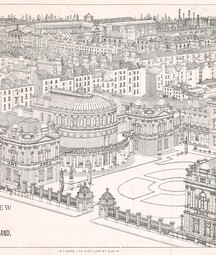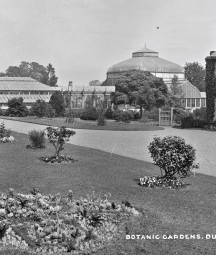Video & Downloadable Resource | Revealing History: Kathleen Clarke
As a republican activist, 1916 Easter Rising widow, charity fundraiser, and campaigner for social change, Clarke was a leading figure in the Irish revolutionary period. Instrumental in the foundation of Cumann na mBan, she was also an influential Sinn Féin party member, Dublin Corporation councillor and TD, and would later become the first woman Lord Mayor of Dublin.
About Revealing History
Revealing History highlights the stories of four individuals, Austin Clark, Hanna Sheehy-Skeffington, Kathleen Clarke, and Arthur Griffith, who were central to the events of 1922 and 1923 in Ireland. The four videos and biographical essays highlight digitised photographs, letters, diary entries, and more from the NLI’s rich collections.
The material explores the foundation of key organisations like Sinn Féin by Arthur Griffith, a journalist and politician who was one of the key negotiators in the truce that ended the War of Independence. The life and actions of Cumann na mBan co-founder Kathleen Clarke reveal the roles she held from a 1916 Easter Rising memory-keeper, to her influential political career and appointment as the first female Lord Mayor of Dublin. Materials also demonstrate the impact of the women’s suffrage movement on Irish society and the nationalist movement through the words and deeds of Hanna Sheehy-Skeffington, a nationalist politician and militant suffragette. Finally, the story of Austin Stack reveals the importance of the Irish Cultural Revival and groups like the Gaelic Athletic Association to Irish identity and cultural nationalism. Stack was a former GAA All-Ireland winner heavily involved in militant nationalist activities.
The lives of these key individuals, their relationships, political beliefs and actions, all demonstrate the vast change taking place across Ireland and the world during the early twentieth century. Their stories in particular show the impact of the Civil War on Irish society and the long-term repercussions this division caused for decades afterwards.
This material represents just some of the tens of thousands of the NLI’s digitised items that tell the story of the 1913-1923 period, made possible with funding from the Department of Tourism, Culture, Arts, Gaeltacht, Sport and Media. It is accessible from anywhere around the world through the NLI’s online catalogue.
If our team can be of any assistance, please contact us at learning@nli.ie

